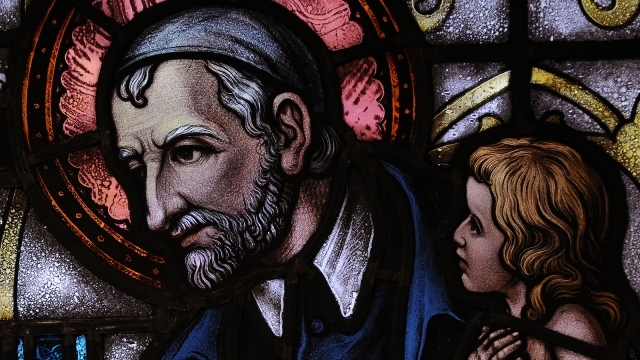

Vincentian Heritage
- Home
- Who We Are
- History and Facts
- Vincentian Heritage
St. John’s University looks to St. Vincent de Paul (1581–1660), founder of the Congregation of the Mission, for its vision and inspiration. Early in his ministry as a priest in 17th-century France, Vincent discovered that one finds God and oneself in service to others. His conviction guides St. John’s students, faculty, staff, and alumni in using their education to help build a better world.
During Vincent’s lifetime, Paris and rural France were marked by the affluence of the few and the poverty of the masses. Vincent combined faith, a keen intellect, and considerable business acumen to revolutionize methods of caring for and educating those in need. Respected by the powerful and loved by the poor, he bridged social classes through his works of charity and his advocacy for the disenfranchised.
Working closely with St. Louise de Marillac (1591–1660), Vincent organized hospitals for the poor, founded asylums for the orphaned, opened workshops for the unemployed, championed literacy for the uneducated, advocated for the incarcerated. He also advanced the education and formation of clergy throughout France, where his community of priests and brothers attended to the material and spiritual needs of the poor.
In 1870, the Right Rev. John Loughlin, Bishop of Brooklyn, asked the Vincentian Community to establish an institution of higher education to serve a growing immigrant population. The result was St. John’s College, on Lewis Avenue in Brooklyn. The college grew into today’s university, with campuses and locations in New York and around the world. Yet Vincent’s legacy continues to inform the St. John’s experience, which combines academic excellence with abundant opportunities to cultivate faith and engage in service.
As a Catholic and Vincentian university, St. John’s extends Vincent’s vision and continues his efforts on behalf of those in need. The University directs its resources of faith and knowledge to combat the root causes of injustice and create paths to a more equitable world.
